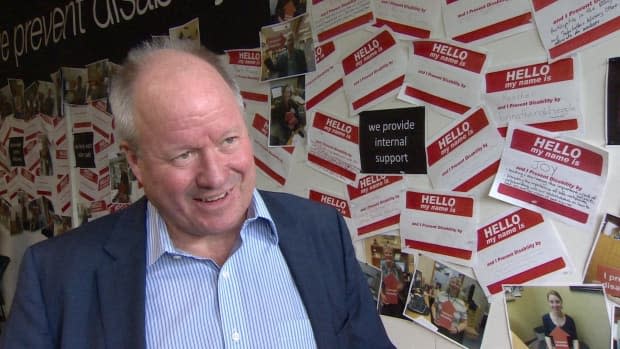Grace period ends for Yukon's lobbyist registry
Yukon's lobbyist registry now has teeth.
A 90-day grace period for the registry came to an end this past week. The registry aims to track who is lobbying the Yukon government and what they're talking to MLAs, cabinet ministers and civil servants about.
Helen Fitzsimmons, the registry's administrator, said the grace period was a "one-time deal" to let lobbyists get accustomed to the new rules.
"It's new legislation, so there's an education component part of it," she said. "And we'll be doing that as well as advising all government employees or public office holders what their responsibility is."
Fitzsimmons said the onus is on lobbyists to register. First-time violations of the rules can mean a fine of up to $25,000. Subsequent violations can carry a penalty of up to $100,000.
The registry is managed by the Legislative Assembly but falls under the authority of the Conflict of Interest Commissioner. Fitzsimmons said that office does not have the power to investigate complaints.
The registry applies to two types of lobbyists: in-house, who are employees of organizations or businesses who lobby the government for at least 20 hours per year, and consultant, who are paid to lobby on behalf of a client.
Are you a lobbyist? Take the quiz to find out
Fitzsimmons acknowledged there's still some confusion about what exactly constitutes lobbying. The registry has an online quiz that aims to help people determine whether what they're doing amounts to lobbying.
"Advocacy is an activity that seeks to garner public support for or make the public aware of a particular issue," Fitzsimmons said. "Advocacy becomes lobbying where there's an intent to influence the public office holder to support or oppose, for example, changes in laws, programming, [or] funding arrangements."
So far, the registry has 11 entries. It includes some familiar names in the Yukon private sector, including Northwestel, Alexco Resources Corp., and Northern Vision Development. The Yukon Conservation Society has also registered.

Northern Vision CEO Rich Thompson said he supports the registry because more transparency means more public trust in government.
"I think it's really more about just making sure things are tracked when conversations happen and contact is made," he said. "So we certainly wouldn't think that we will change anything that we do. Our business causes us to interface with government fairly frequently. And so that won't change."
Thompson said it's too early to assess how well the registry is working.
Fitzsimmons said the registry won't keep dates or details of meetings or other communications between lobbyists and government officials.

